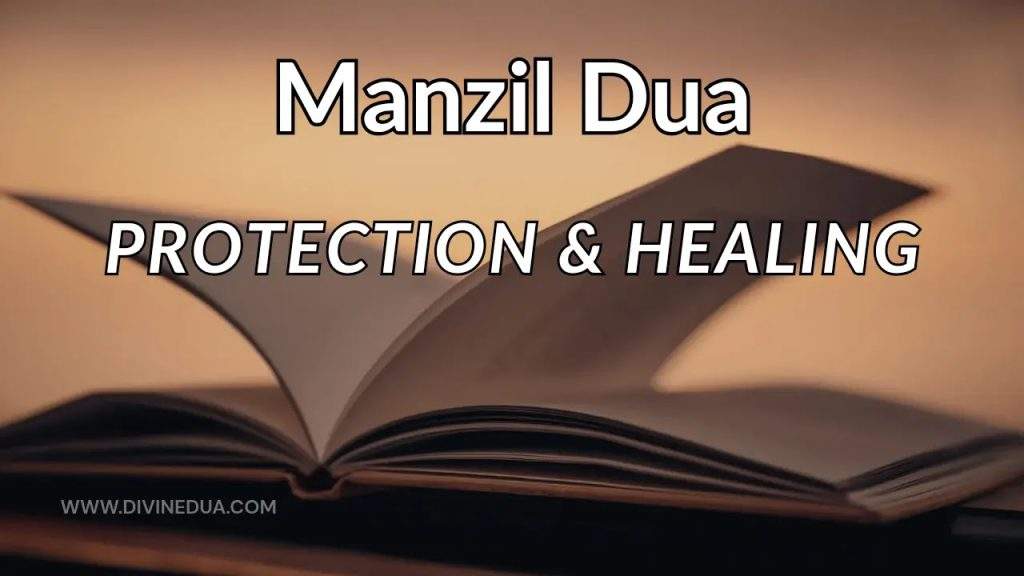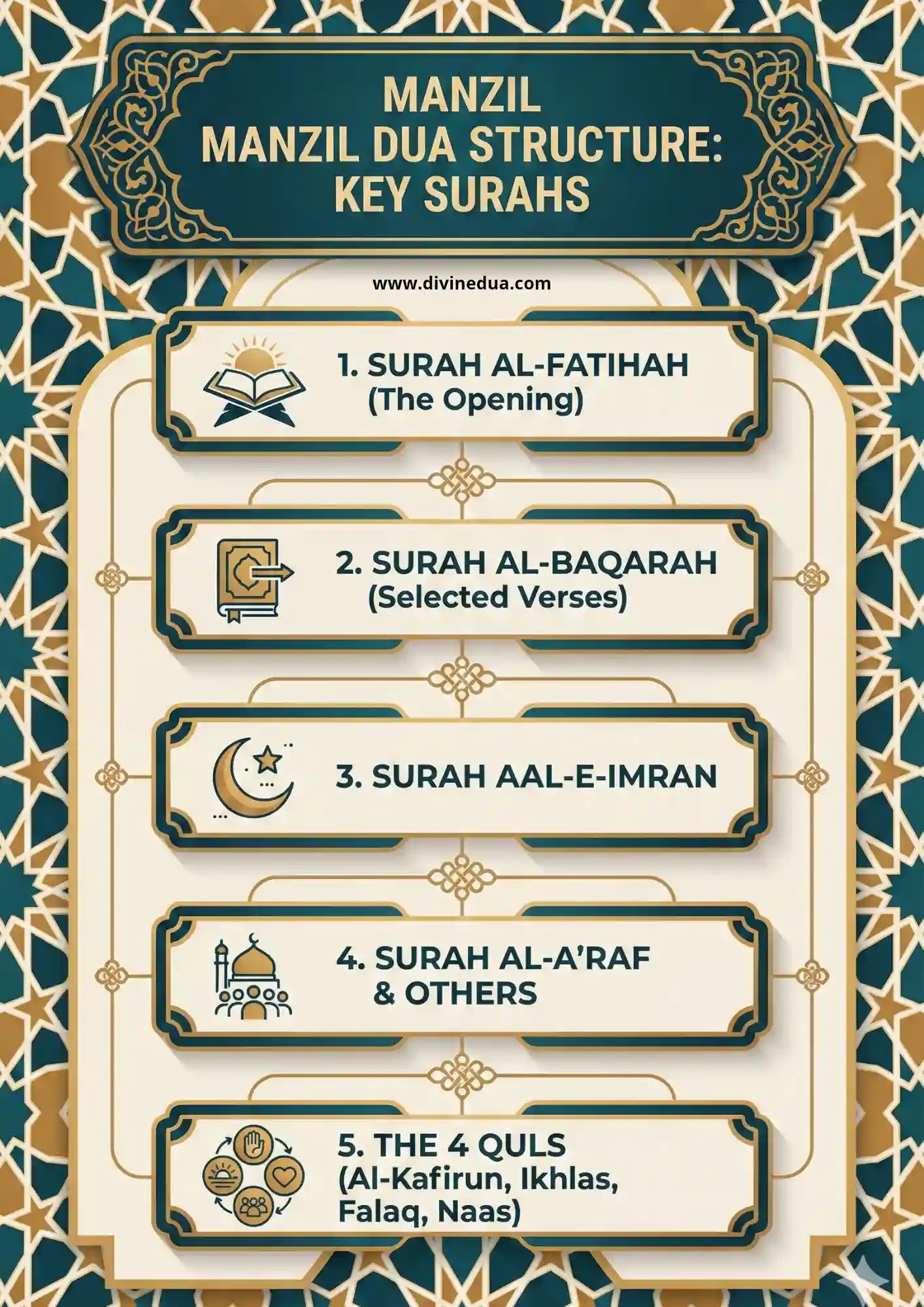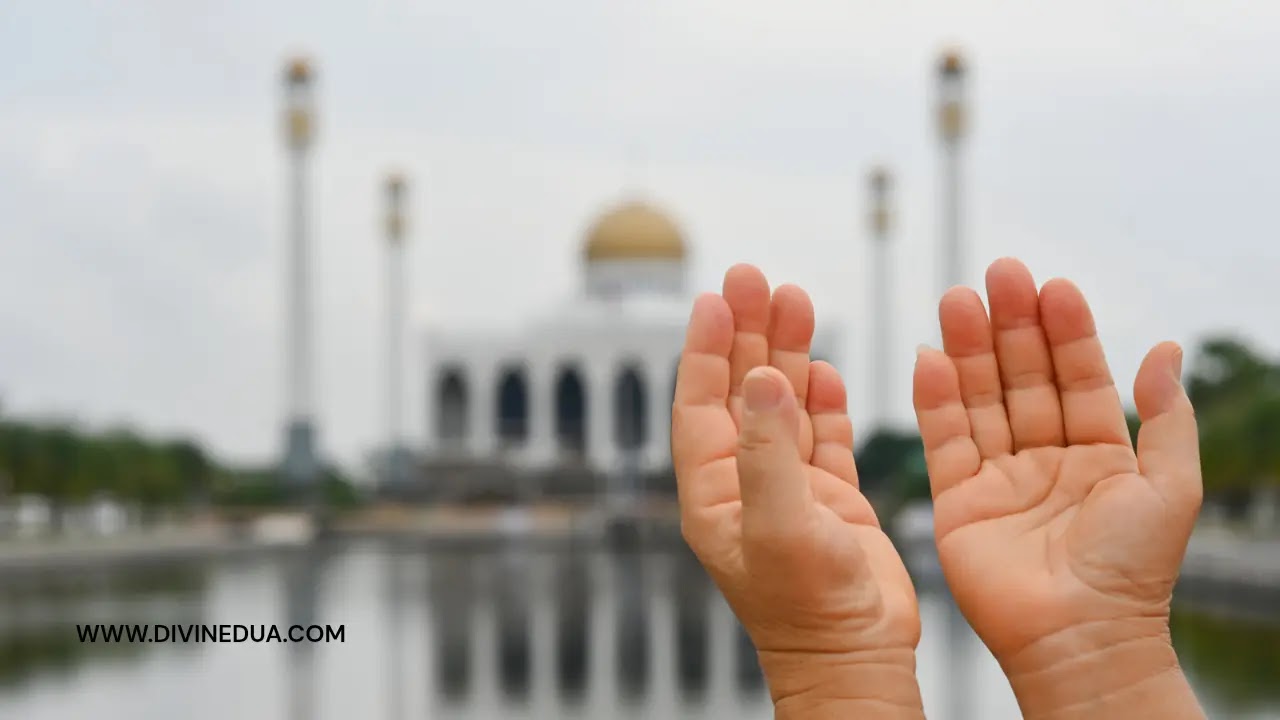The Ultimate Guide to Manzil Dua: Spiritual Protection, Healing Benefits, and Daily Recitation
In a world filled with unseen struggles, anxiety, and spiritual ailments, finding a sanctuary of peace is essential. For millions of Muslims around the globe, that sanctuary is found in the Manzil Dua.
Whether you are suffering from the distress of Black Magic (Sihr), the harmful effects of the Evil Eye (Nazar), or simply seeking a daily shield for your family, this collection of Quranic verses serves as a powerful fortress.
This comprehensive guide will walk you through everything you need to know about Manzil Dua: its origins, its profound benefits, and the correct method of performing this Ruqyah for maximum protection.
📌 The Ultimate Manzil Dua Series (Index)
- 1️⃣ Introduction: What is Manzil Dua?
- 2️⃣ The 33 Verses (Full List & PDF)
- 3️⃣ How to Perform Ruqyah (Step-by-Step)
- 4️⃣ Is it Authentic? (Hadith Evidence)
- 5️⃣ Download High Quality MP3 Audio
- 6️⃣ FAQ: Common Questions & Troubleshooting You are here / Reading
What is Manzil Dua? (Understanding the Concept)
There is a common misconception among some that “Manzil” is a separate book or a special revelation. It is crucial to clarify this from the start: Manzil Dua is not a separate book; it is the Quran itself.
Technically, the word “Manzil” implies a destination or a place of safety. In the context of spiritual healing, it refers to a specific collection of 33 Quranic Verses selected from different parts of the Holy Quran. These verses have been compiled by renowned scholars of Hadith based on authentic traditions and spiritual experiences to serve as a cure (Shifa) and protection.
These verses are known to possess immense power in:
- Repelling Shaytaan (Satan) and Jinn.
- Nullifying the effects of Black Magic.
- Providing a spiritual cure for anxiety and fear.
Essentially, reading Manzil is a form of Ruqyah Shariah (Legislated Incantation), where you use the words of Allah to seek His refuge and help.
Note: While many refer to it as “Surah Manzil,” it is actually a compilation of verses from Surah Al-Fatihah, Al-Baqarah, Aal-E-Imran, and others. [See the full list of 33 Verses here]
How to Read Manzil Dua: The Correct Method
Reciting Manzil is not just about moving your lips; it requires presence of heart and proper etiquette. Here is the recommended method to perform this Ruqyah effectively:
1. Active Recitation (Reading Yourself)
The best way to benefit from Manzil is to read it yourself with proper Tajweed (pronunciation). It is recommended to perform Wudu (ablution) before starting.
- Sit in a clean place facing the Qiblah.
- Recite the 33 verses with the intention (Niyyah) of protection or cure.
- After finishing, cup your hands together, blow (Nafth) into them lightly with a small amount of spittle, and wipe over your face and body. This follows the Sunnah of the Prophet (PBUH) before sleeping.
2. Blowing on Water (Ruqyah Water)
Another powerful method is to recite the Manzil verses and blow onto a bottle of water. You can then drink this water throughout the day or sprinkle it in the corners of your house to remove negative energy. [Read our detailed guide on making Ruqyah Water here]
3. Listening (Passive Healing)
If you are unable to read Arabic fluently, or if the patient is too sick to read, listening to a high-quality audio recording is beneficial. Playing Manzil Dua in the house can help expel Shaytaan and bring tranquility.
When is the Best Time to Read Manzil?
Consistency is key in spiritual healing. Scholars and spiritual practitioners recommend reading the Manzil once or three times daily, depending on the severity of the situation.
- Morning: After Fajr prayer. This provides protection for the entire day until nightfall.
- Evening: After Asr or Maghrib prayer. This provides protection throughout the night.
Making this a part of your daily routine (Morning and Evening Adhkar) ensures a continuous spiritual shield around you and your family.
Conclusion: Your Spiritual Fortress
The Manzil Dua is not magic in itself; it is a plea to the One who holds all power. By reciting these verses, you are acknowledging that true protection comes only from Allah. It is a spiritual weapon that has been tested and trusted by generations of Muslims to ward off evil and bring peace into their lives.
We encourage you not to wait until you face a calamity. Make the Manzil a habit today. Whether you read it for protection, cure, or barakah (blessings), the words of the Quran will never fail to bring light into your home.
📚 Dive Deeper into Manzil Dua
This guide is just the beginning. To fully benefit from Manzil, explore our detailed resources:
- Read the Full 33 Verses: Get the complete Arabic text, English transliteration, and meanings.
- Is it Authentic? Understand the history and Hadith evidence behind Manzil.
- Download Resources: Get the Manzil Dua PDF and high-quality MP3 audio for offline use.
May Allah protect you, your family, and your home from all evil and grant you complete Shifa. Ameen.




